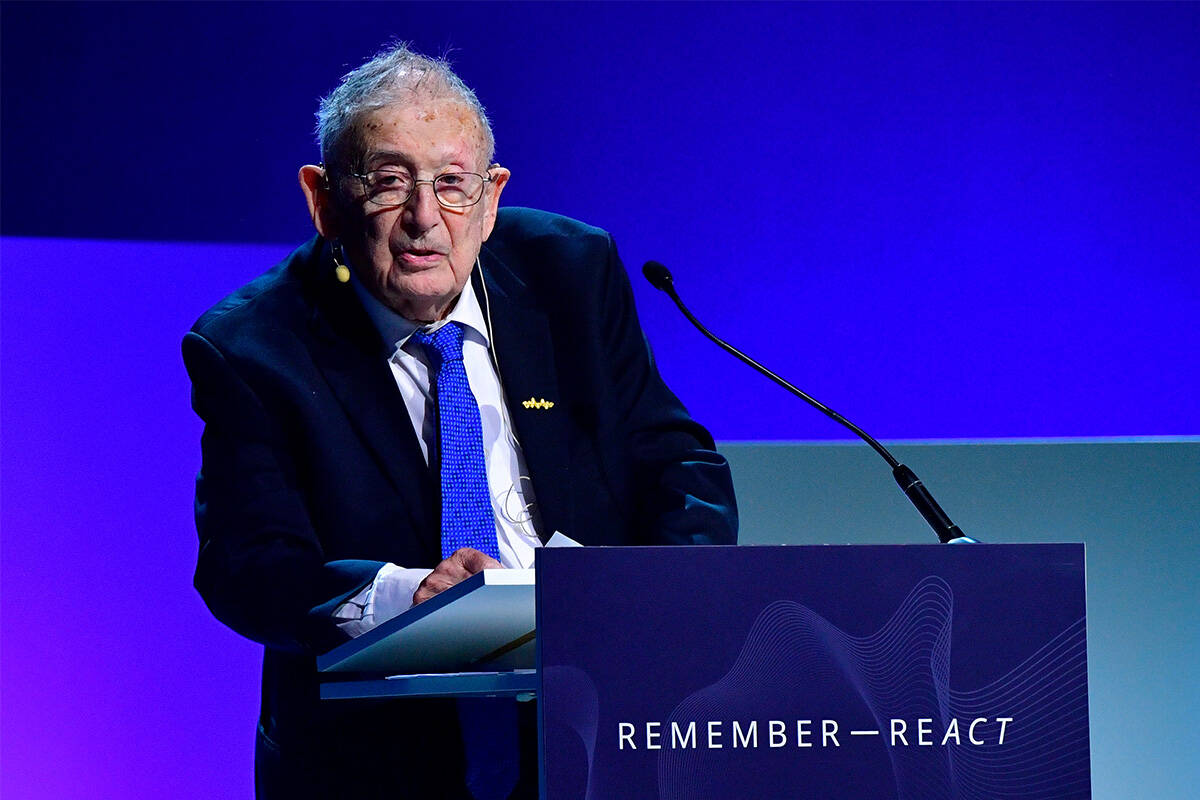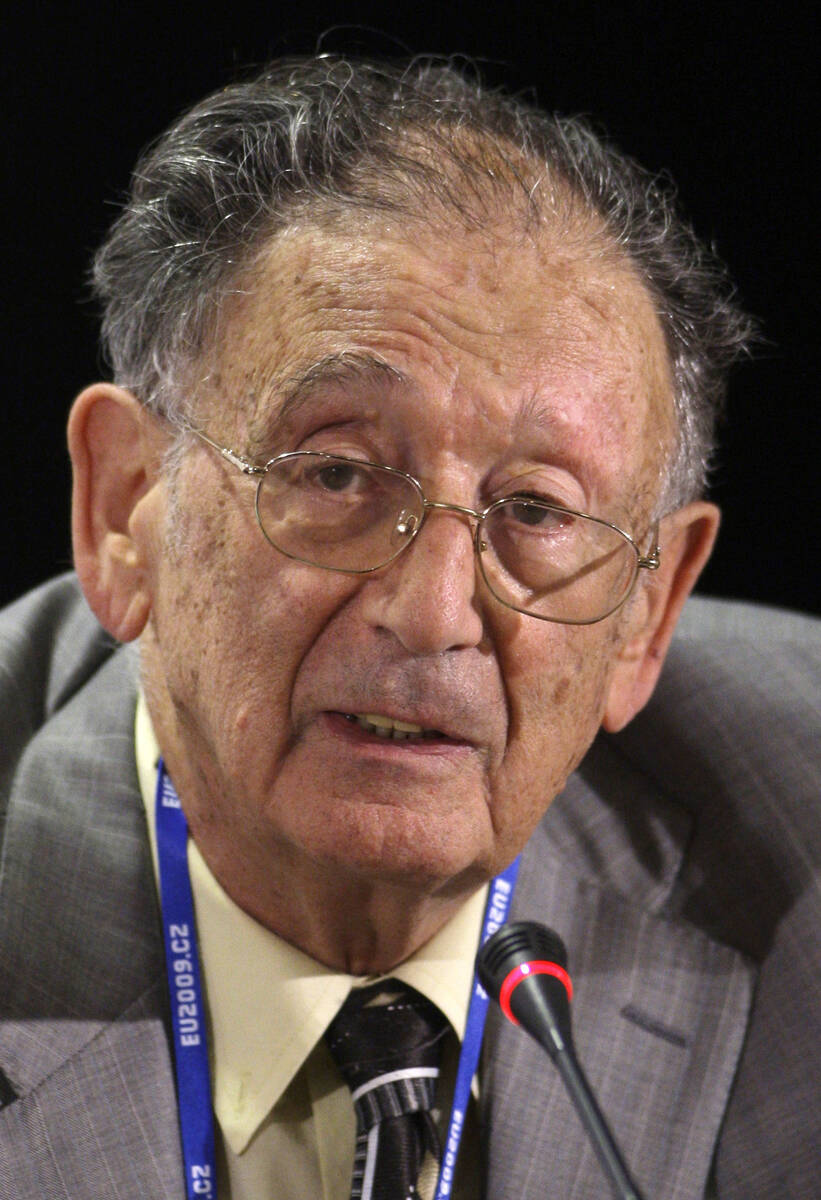Yehuda Bauer, prominent Israeli Holocaust scholar, dies at 98
TEL AVIV, Israel — Yehuda Bauer, one of Israel’s foremost Holocaust scholars who shaped the way people around the world study and learn about the Holocaust, has died in Jerusalem. He was 98.
No specific cause of death was given by the Yad Vashem, Israel’s national Holocaust memorial in Jerusalem, which announced his death Friday evening.
Bauer published dozens of books and founded numerous international Holocaust education initiatives over a career that spanned more than six decades. He spoke Czech, Slovak, German, Hebrew, Yiddish, English, French and Polish, and learned Welsh while studying at Cardiff University in Wales. His mastery of languages allowed him to study source material in its original form and connect directly with audiences across the world.
“One of his important points was that the Holocaust is not only a particular event that affected particular people, but that the Holocaust was also universal,” said Dr. David Silberklang, a senior historian at the International Institute for Holocaust Research at Yad Vashem who worked closely with Bauer for years.
“Once it happened, and human beings did what they did, it has entered the playbook, the potential of what human beings could do and therefore could be done again,” he said.
Bauer was born in Prague in 1926. As a teenager, his family was able to flee Europe in 1939 and came to British Mandate Palestine via Romania. After returning from university in Wales, he joined Kibbutz Shoval in southern Israel and studied at the Hebrew University. He lived in Jerusalem for the last decades of his life.
Bauer launched his academic career in the 1960s, during a time when people in Israel were just starting to talk more openly about the Holocaust. In the immediate years after the Holocaust, as many survivors were shattered and trying to build their lives, very few people spoke openly about what had happened.
Silberklang said that the country needed time and perspective before it could start examining the Holocaust under an academic lens, and that Bauer was one of the first wave of scholars to begin rigorous research on a topic that had previously been too painful to discuss.
In Israel, shame and guilt swirled around perception that European Jews had gone “like sheep to the slaughter.”
Bauer’s research delved into different aspects of Jewish resistance and began to change the narrative of how victims of the Holocaust had found ways to resist the Nazis beyond just armed struggle, such as smuggling or continuing to observe religious or cultural traditions.
Some of his most well-known publications include “American Jewry and the Holocaust,” probing the American response to WWII; “Jews for Sale?” about negotiations to rescue Jews during the Holocaust; “Death of the Shtetl” about the decimation of the small Jewish communities in Europe; and “Rethinking the Holocaust,” examining fundamental questions about how to define and explain the Holocaust and how or whether the Holocaust can be compared to other genocides. Bauer was known for directly engaging with non-academic audiences and spoke widely around the world.
With European heads of state, Bauer helped create the International Holocaust Remembrance Alliance (IHRA) in 1998, a coalition of more than 35 countries that requires its members to devote government funding to Holocaust education and commemoration. With IHRA, Bauer also helped author the Working Definition of Antisemitism, which is used by many governments and organizations to help define hate crimes and discrimination against Jews.
Bauer was awarded the Israel Prize, one of the country’s highest honors, in 1998. Silberklang said Bauer remained engaged and active until the end of his life, including writing Op Eds and contributing to academic discussions.
Silberklang said Bauer disagreed with the comparison of Hamas’ Oct. 7 attack against Israel to the Holocaust, noting that the Palestinian terrorist group is not as strong or organized as the Nazis and the state of Israel exists to provide a military response.
A lover of music, Bauer had a deep baritone and was known to sing duets with some of his academic partners or break out into traditional Welsh folk songs he learned as a university student, Silberklang said.
He is survived by two daughters, three step-children, and numerous grandchildren.


















